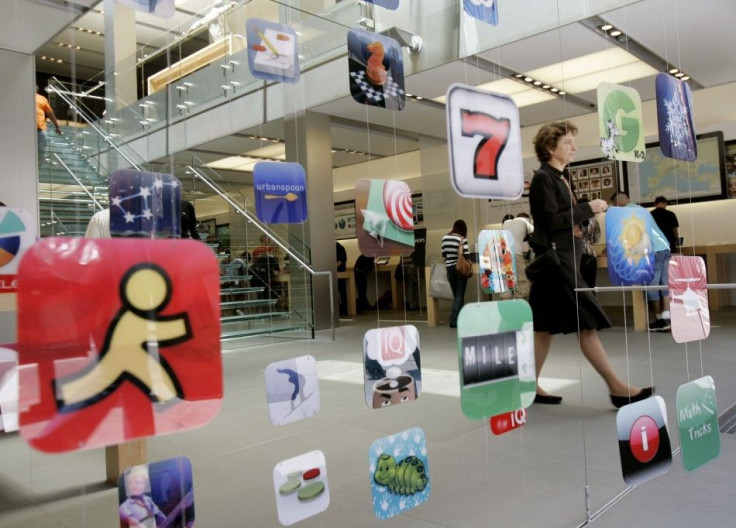Android Market Now Accounts for More Mobile App Downloads Than Apple

Android Market now accounts for more mobile app downloads than Apple and its App Store, thanks to Google's open-source strategy, according to ABI Research. The Android platform was responsible for 44 percent of all mobile app downloads in the second quarter of 2011, as opposed to iOS's 31 percent.
Nevertheless, studies show Android app downloads per user still trail Apple's by a margin of two to one, but the number of users whose phones run on Android makes up for the difference.
Android's open-source strategy is the main factor for its success, said Lim Shiyang, ABI research associate. Being a free platform has expanded the Android device install base, which in turn has driven growth in the number of third-party multi-platform and mobile operator app stores.
In 2009, the Android Market made up just 11 percent of mobile app downloads and was projected to reach over 20 percent by 2014. But after unprecedented growth, the Android platform is now number one in app downloads, as well as in total smartphone market share.
The open-source strategy that has led the Android Market to such speedy growth has also left the door open for malware and viruses on Android devices, but that is not a concern for iOS users. As the different types of malware on the platform grow, Google faces the challenge of working with manufacturers and developers to contain the problem as much as possible.
Android is also expected to surpass Apple in total number of apps available by the middle of 2012, an area where it has always been behind. A recent report from research firm Research2guidance showed that while the Apple App Store had some 600,000 published apps in September, the Android Market had more than 500,000 published, which indicated huge growth from when the market was first created.
However, Android's success in apps doesn't necessarily come at Apple's expense; the App Store generates massive amounts of revenue for the company and developers.
Research2guidance also pointed out that a combination of a higher submission rate and lower decommission rate of apps has propelled Android app growth, especially over the past few months. They noted that in the third quarter of 2011, the number of active mobile applications in the Android Market was about 319,161, while Apple App Store had 459,589.
In September alone, the Android Market gained 42,000 applications -- a new record.
More than 37 percent of the applications published were later removed from the Android Market for various reasons, researchers said, noting that the Apple App Store has removed about 24 percent of published apps in comparison by of the end of September. Additionally, more than 78 percent of the apps removed from the Android Market were free.
Research2guidance forecast in May that the Android Market would surpass the Apple App Store in size by August of this year. Although that hasn't been the case, Android is making big strides.
Android developers are significantly more productive than Apple's, said Research2guidance. We've noticed that the average publisher on Android has placed more than six applications in the Market since launch, compared to just over four apps on average that have been published by iOS developers.
Apple is known to have a more demanding set of application submission requirements than Android, wrote Egle Mikalajunaite, Research2guidance analyst. Its process of reviewing, approving, and denying apps, however, has been an integral part of maintaining its success.
It is likely that the more rigid application submission requirements [at Apple] prevent developers from publishing multiple trial or low quality applications, whereas publishers in the Android Marketplace a lot of market testing, trials, demo and malware content, she noted.
Most developers have been picking Apple's iOS platform for publishing paid apps since it launched in 2008 because right now, it gives them the best chances of earning them some income. But, with Android's reduction in free apps and the rise of more apps being developed, that may soon change.
The numbers may show that Google is tops in mobile apps now, but the Android Market still has plenty of areas where it can improve.
Related Article: Android Market Sees 'Exponential Growth' With 500K Apps: Researchers
© Copyright IBTimes 2024. All rights reserved.





















